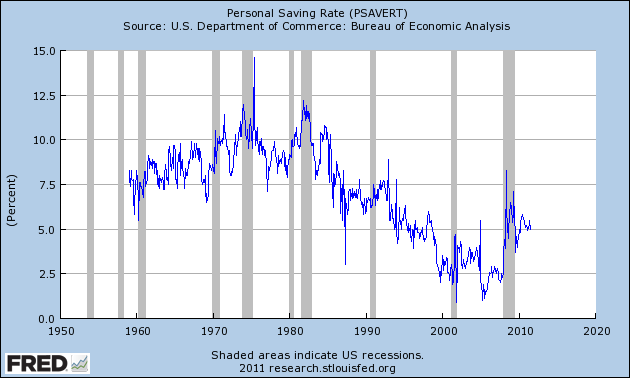Saving money isn't always easy. And when people are struggling financially, it can seem impossible, yet that's when it's even more important to save for the unexpected.
The best savings programs use a little psychology to help people trick themselves into saving every month. These include employers' 401k plans and banks' automated savings programs. But what if you're one of the millions who don't have a full-time job with benefits? What if you're one of the millions who don't have a bank account?
What's needed are new options that help lower-income earners nudge themselves in the right direction by making it a subconscious habit to tuck money away. Simply copying employee-based or bank-based programs won't work because the psychology of saving when you're financially squeezed is different than when you're wealthy or well-employed. Some of the factors that need to be addressed include the following:
- Motivation to save. When money is tight, it can be difficult to feel motivated by the long-term benefits of saving. Shorter-term incentives with a big possible payback can help.
In 2008, the Doorway to Dreams fund (D2Dfund.org), which researches ways to help lower income people save, launched a prize-linked savings promotion called "Save to Win" in Michigan. For every $25 deposited, a saver received a chance to win monthly cash prizes or the end of the year $100,000 grand prize. At the end of the 2009 pilot year, over 11,000 savers had saved over $8.6 million. The Michigan Credit Union League which deployed the operations had over 40 credit unions offering the Save to Win product.
Credible, understandable incentives. Compound interest, reward points, "free" money, cash-back, bonus offers.... if it requires too much effort to understand a savings program, it can be easier to do nothing, and people are understandably skeptical of the offers. When researching how to add savings programs to prepaid card accounts, I found that many people confuse interest earned with interest paid. When you're used to financial services that cost more than you bargained for, the default is to expect to lose money, not earn it, on savings programs.
Eliminating hidden fees. Some savings programs targeted to lower-income people tack hidden fees on to transactions such as transferring money between accounts over the phone. It's a lousy way to waste people's hard-earned cash and great way to deter people from saving. Any new programs or services to help lower-income people save more and increase fiscal efficiency need to take these psychological factors and more into account to help people boost their savings... and weather economic ups and downs better.
Disclosure: the D2Dfund.org research was partly financed by the non-profit Center for Financial Services Innovation, which has invested in my company Plastyc through its venture partner Core Innovation Capital.
Support HuffPost
Our 2024 Coverage Needs You
Your Loyalty Means The World To Us
At HuffPost, we believe that everyone needs high-quality journalism, but we understand that not everyone can afford to pay for expensive news subscriptions. That is why we are committed to providing deeply reported, carefully fact-checked news that is freely accessible to everyone.
Whether you come to HuffPost for updates on the 2024 presidential race, hard-hitting investigations into critical issues facing our country today, or trending stories that make you laugh, we appreciate you. The truth is, news costs money to produce, and we are proud that we have never put our stories behind an expensive paywall.
Would you join us to help keep our stories free for all? Your contribution of as little as $2 will go a long way.
Can't afford to donate? Support HuffPost by creating a free account and log in while you read.
As Americans head to the polls in 2024, the very future of our country is at stake. At HuffPost, we believe that a free press is critical to creating well-informed voters. That's why our journalism is free for everyone, even though other newsrooms retreat behind expensive paywalls.
Our journalists will continue to cover the twists and turns during this historic presidential election. With your help, we'll bring you hard-hitting investigations, well-researched analysis and timely takes you can't find elsewhere. Reporting in this current political climate is a responsibility we do not take lightly, and we thank you for your support.
Contribute as little as $2 to keep our news free for all.
Can't afford to donate? Support HuffPost by creating a free account and log in while you read.
Dear HuffPost Reader
Thank you for your past contribution to HuffPost. We are sincerely grateful for readers like you who help us ensure that we can keep our journalism free for everyone.
The stakes are high this year, and our 2024 coverage could use continued support. Would you consider becoming a regular HuffPost contributor?
Dear HuffPost Reader
Thank you for your past contribution to HuffPost. We are sincerely grateful for readers like you who help us ensure that we can keep our journalism free for everyone.
The stakes are high this year, and our 2024 coverage could use continued support. If circumstances have changed since you last contributed, we hope you’ll consider contributing to HuffPost once more.
Already contributed? Log in to hide these messages.
